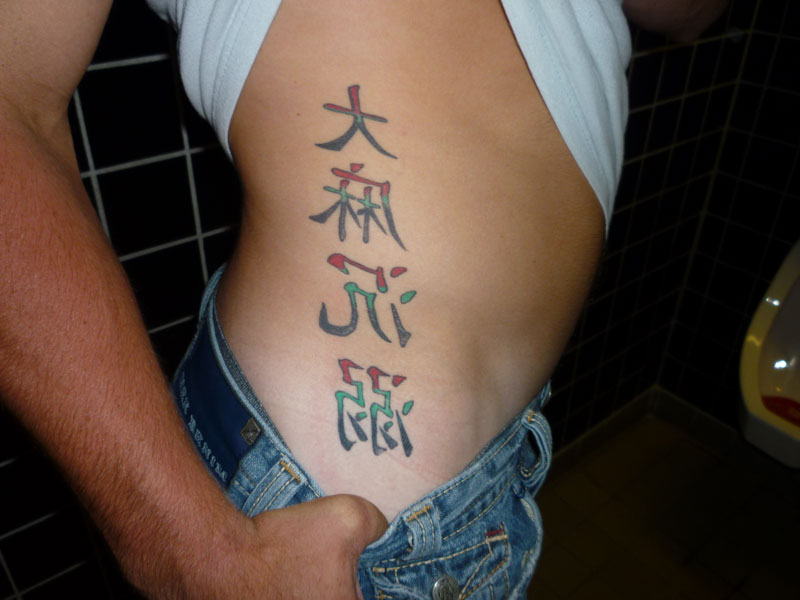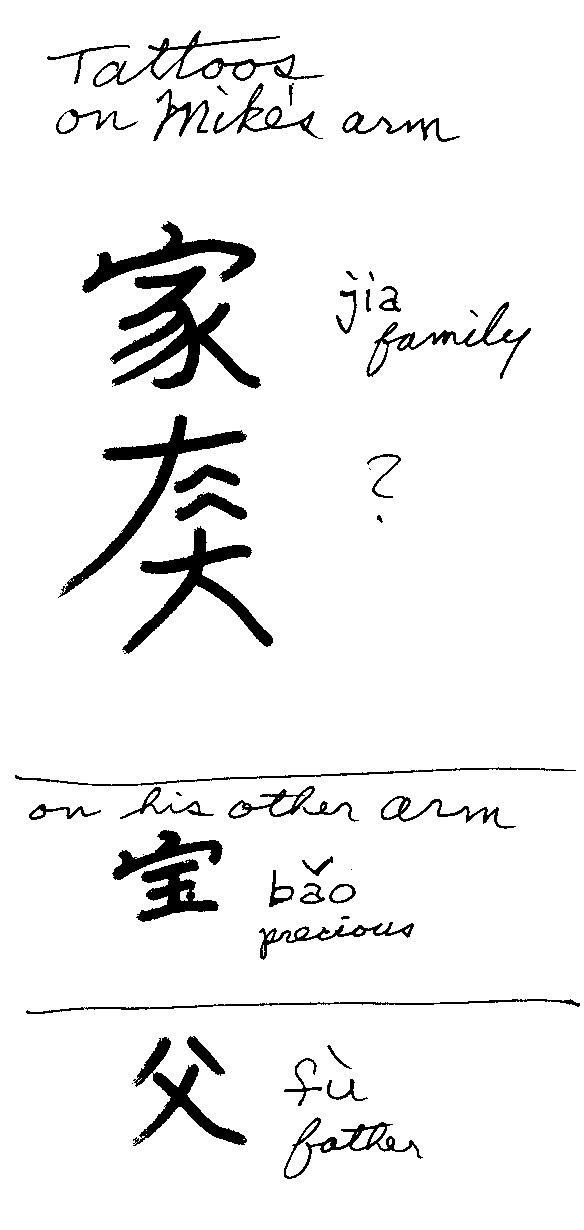Archive for July, 2013
Potosi miners' language
My roommate here at the LSA Institute is Pieter Muysken, and one of the many things that I've learned from him is that for 450 years or more, miners in Potosí (in what's now Bolivia) have communicated among themselves in a mixed language spoken only by mine-workers in connection with mining operations. Since the existing scholarly literature seems to contain just a few scattered references to this interesting phenomenon, I asked Pieter some questions about it, and I reproduce his answers below.
Read the rest of this entry »
Too many English loanwords in Japanese?
In "Chinese loans in English", we have been debating why there are so few recent borrowings from Chinese into English. In contrast, not long ago the headline of a Japan Times article blazoned: "Gifu man, 71, sues NHK for distress over its excess use of foreign words".
Read the rest of this entry »
Four-quark matter and linguistic insights
Back in June, Sally Thomason noted that Carmel O'Shannessy's paper in the June issue of Language, "The role of multiple sources in the formation of an innovative auxiliary category in Light Warlpiri, a new Australian mixed language", was getting widespread press coverage ("A new mixed language in the news", 6/18/2013). Sally flagged stories by Denise Chow, "Australia's Mixed Language, 'Light Warlpiri,' Discovered In Remote Desert Community", Live Science 6/18/2013, and by Enrico de Lazaro, "Light Warlpiri: New Study Sheds Light on Origins of Recently Discovered Australian Language", sci-news.com 6/18/2013.
We can add Paul Hamaker, "Light Warlpiri is the newest language on earth", The Examiner 6/18/2013; Joanna Egan, "New Aboriginal language born in the NT", Australian Geographic 6/20/2013; and reprints of Denise Chow's piece in the Huffington Post and on Fox News. And an excellent article by Olga Khazan in The Atlantic, "How the World's Newest 'Mixed' Language Was Invented", 6/18/2013.
Update — and now Nicholas Bakalar, "Linguist Finds a Language in its Infancy", NYT 7/14/2013.
Read the rest of this entry »
Chinese loans in English
In "Why so little Chinese in English?", Robert Lane Greene ponders the paucity of recent Chinese loanwords in English, and there is a further discussion on Language Hat. English loves to borrow far and wide, yet it is strange how few words of Chinese origin there are in English. This is particularly odd for recent times, when there has been so much contact between Chinese and English speakers, and there have even been campaigns on the part of Chinese officials, journalists, and netizens to promote particular expressions for adoption into English.
Read the rest of this entry »
Rachel Jeantel’s language in the Zimmerman trial
[Below is a guest post by John Rickford.]
The defense plans to rest in the Florida trial of George Zimmerman today, and arguments are raging about whether he will be found guilty of murdering Trayvon Martin or not.
In the case of Rachel Jeantel, however, the 19-year old prosecution witness whose testimony on June 26 and 27 went on longer (5 to 6 hours) and generated more commentary in the media than any other witness, the GUILTY verdict is already in.
Read the rest of this entry »
That howling void of thoughtlessness beneath
From Charles Stross, Neptune's Brood. It's 7000 AD, and Krina Alizond-114 has this to say about a not-very-helpful piece of interactive software:
[T]hese things bore only a thin veneer of intelligence: Once you crack the ice and tumble into the howling void of thoughtlessness beneath, the illusion ceases to be comforting and becomes a major source of irritation.
Read the rest of this entry »
Hooked on pot
Carl Masthay sent me the following photograph of a tattoo consisting of four large Chinese characters:
Read the rest of this entry »
Little doubt it wouldn't
Some time ago, R.I. sent in this quotation from Golf World, 6/3/2013:
Because Irwin is the oldest U.S. Open champion—45 when he defeated Mike Donald in a playoff at Medinah CC in 1990—and won his last PGA Tour event, the 1994 MCI Heritage, when he was 48, there seemed little doubt his skill set wouldn't make him a formidable senior-tour member if he committed to the 50-and-over circuit.
You probably think that this is going to be about misnegation, and the tendency for negative concord to sneak back into standard English after having been chased out a half a millennium ago. That's what I thought too, but along the way to YAMP (Yet Another Misnegation Post) I was waylaid by a curious observation.
Read the rest of this entry »
Ask Language Log: The historical future
J. Eric Butler wrote:
As an academic in a humanities discipline, I read a lot of formal prose concerning historical subjects. I often come across the English future perfect in these contexts, which strikes me as odd, albeit easy enough to understand. So I usually just barely register it and then move on. But at some point it occurred to me that I have no idea what motivates this usage, so I thought LL would probably have some insight.
Read the rest of this entry »
Weird characters
At the conclusion of "Mystery characters and variant characters", I promised that I would introduce Language Log readers to some truly weird characters. Herewith, I fulfill that pledge by presenting the following five photographs forwarded to me by Don Clarke. They were taken by a friend of his in Shēnkēng 深坑 ("Deep Pit"), Taiwan.
Read the rest of this entry »
No word for "textural truth"
Philip Maughan, "Colum McCann: 'What could be worse that [sic] being called a historical novelist?'", The New Stateman 7/4/2013:
| Q: | And, of course, there is a narrative element to any work of non-fiction. |
| A: | I’m interested in the idea that these categories don’t really exist. Aleksandar Hemon says that, in Bosnian, there is no word for either “fiction” or “non-fiction”: there is only “storytelling”. He inserts himself into much of his work but it’s a construct. To put it another way, what Google or Wikipedia says about you might be an utter fiction. The storyteller must at least be responsible to a textural truth: not so much the dates and facts but the textural contradictions that he or she finds. |
Read the rest of this entry »
Mystery characters and variant characters
Carl Masthay sent in this transcription of tattoos on the arms of a guy he met in a bar last Saturday:
Read the rest of this entry »


